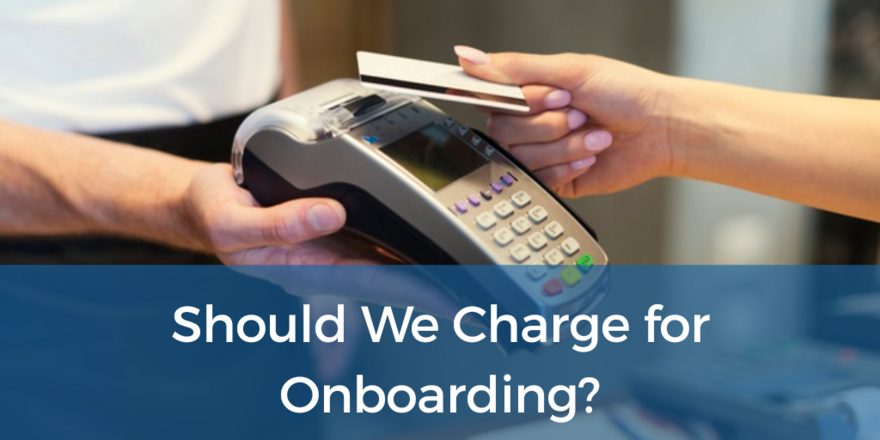Should We Charge for Onboarding?

The process of onboarding new clients is your opportunity to set expectations and boundaries for the future of your relationship.
The process of onboarding has become more time consuming over the last few years. Money laundering checks are becoming more in-depth, with online checks costing money to carry them out.
The checks can sometimes involve a bit of back and forward to ensure that you have the documents to let you tick all of the boxes required.
It's not just a legal process, but also gives you the chance to get a better understanding of the clients business. To do this properly will also eat into your time.
One way or another, this will cost you. You'll either need to recover the cost through the term of the relationship, or suck it up as an overhead of running your practice.
There is a third option, though. You could charge your new client an onboarding fee. A single, upfront payment to compensate you for the onboarding process.
This concept may seem a bit alien. It's not generally the done thing for bookkeepers. That doesn't mean that it shouldn't be considered, though.
Until just a few years ago most bookkeepers charged by the hour. Just because something has always been done isn't sufficient justification to continue doing it.
By changing an upfront fee for this process you are setting demonstrating to your new client that this is important and something they should be taking seriously.
By showing the client early that your time and expertise are of value you will set the tone for the relationship ahead.
The transparency of showing this charge builds trust.
Even though the onboarding will not deliver any immediate results to the client, it will form the foundation for the whole relationship.
Through my time as a bookkeeper there have been occasions where I have onboarded a client only for them to do a vanishing act. At this stage any efforts I've spent on them needs to be written off. I've had to suck it up with no chance of ever recovering the cost.
My final thought about charging for an onboarding fee is that it's a great way to weed out the tyre kickers. If someone isn't willing to pay £20 or £30 to onboard them as a client, then it should be sufficient to set off alarm bells for the future.
In summary, charging an onboarding fee allows you to recover your costs for the process, to weed out tyre kickers and to set the tone for the future of your relationship. It's used in many other professions and is more transparent than hiding it in a monthly fee.
I can see huge merit in this, but I'd love to hear your views. Do you charge an onboarding fee? Would you consider it?


1 comment
I dont charge to onboard yet but I do charge a payroll set up fee which I never used to
Leave a comment